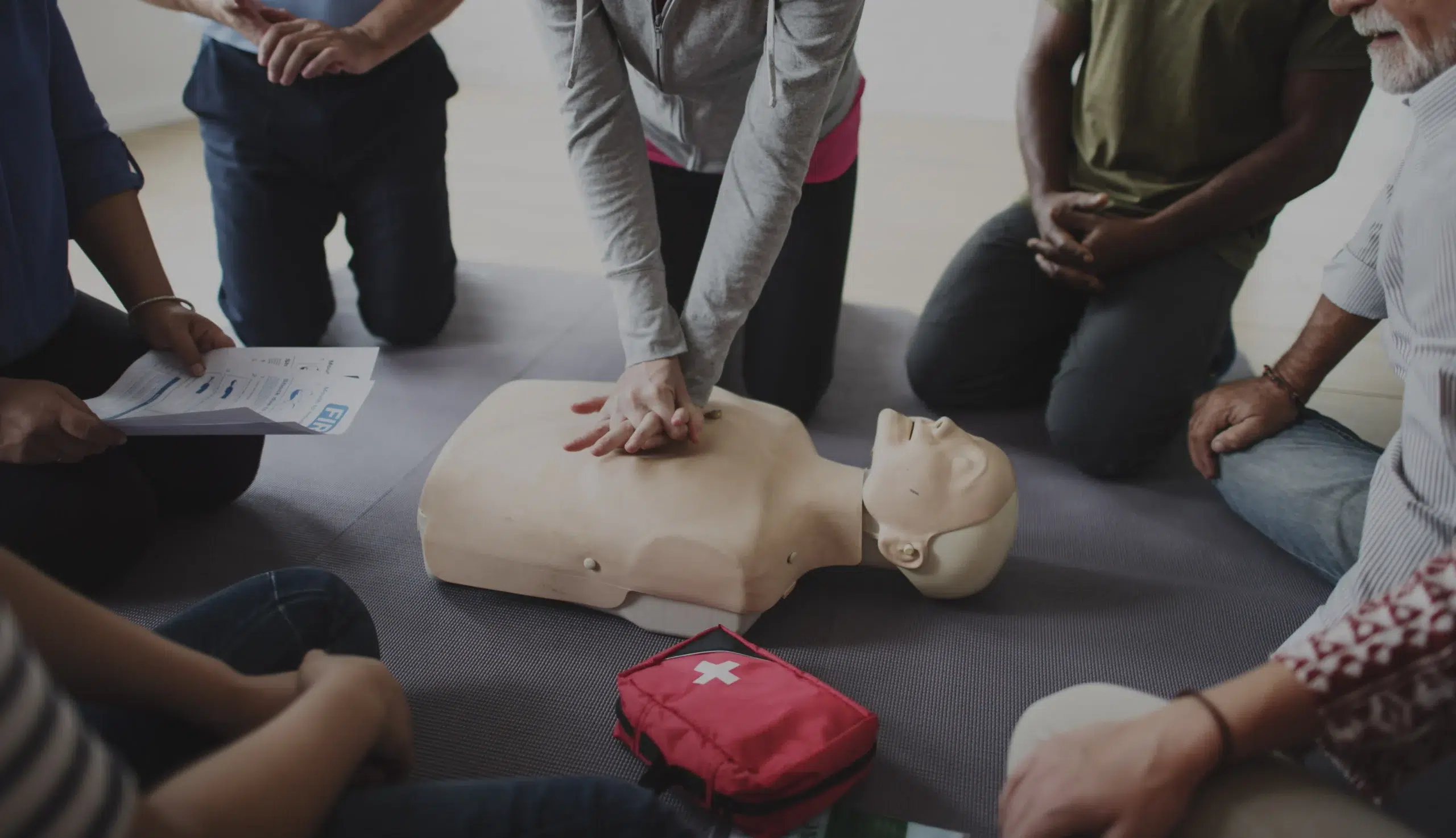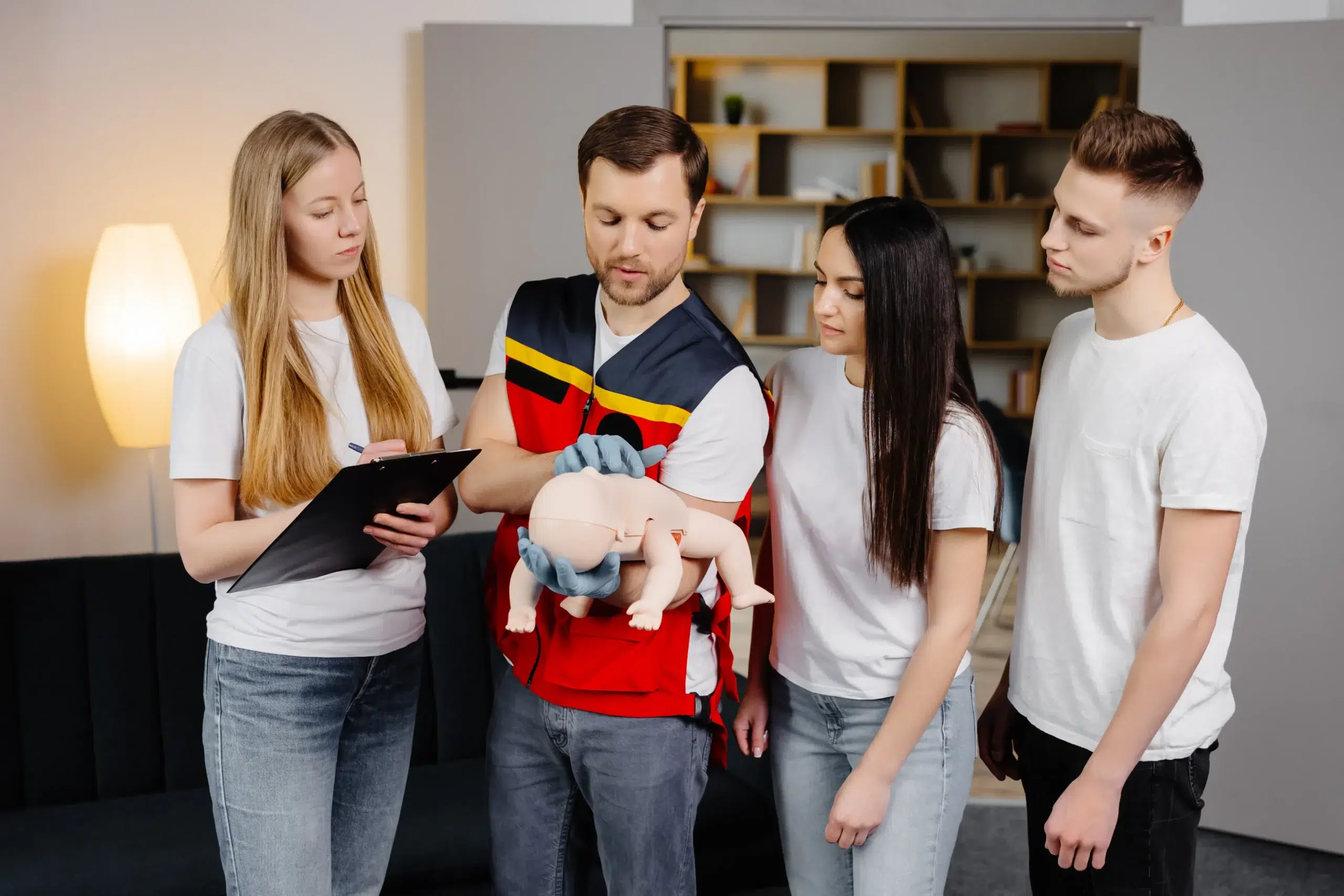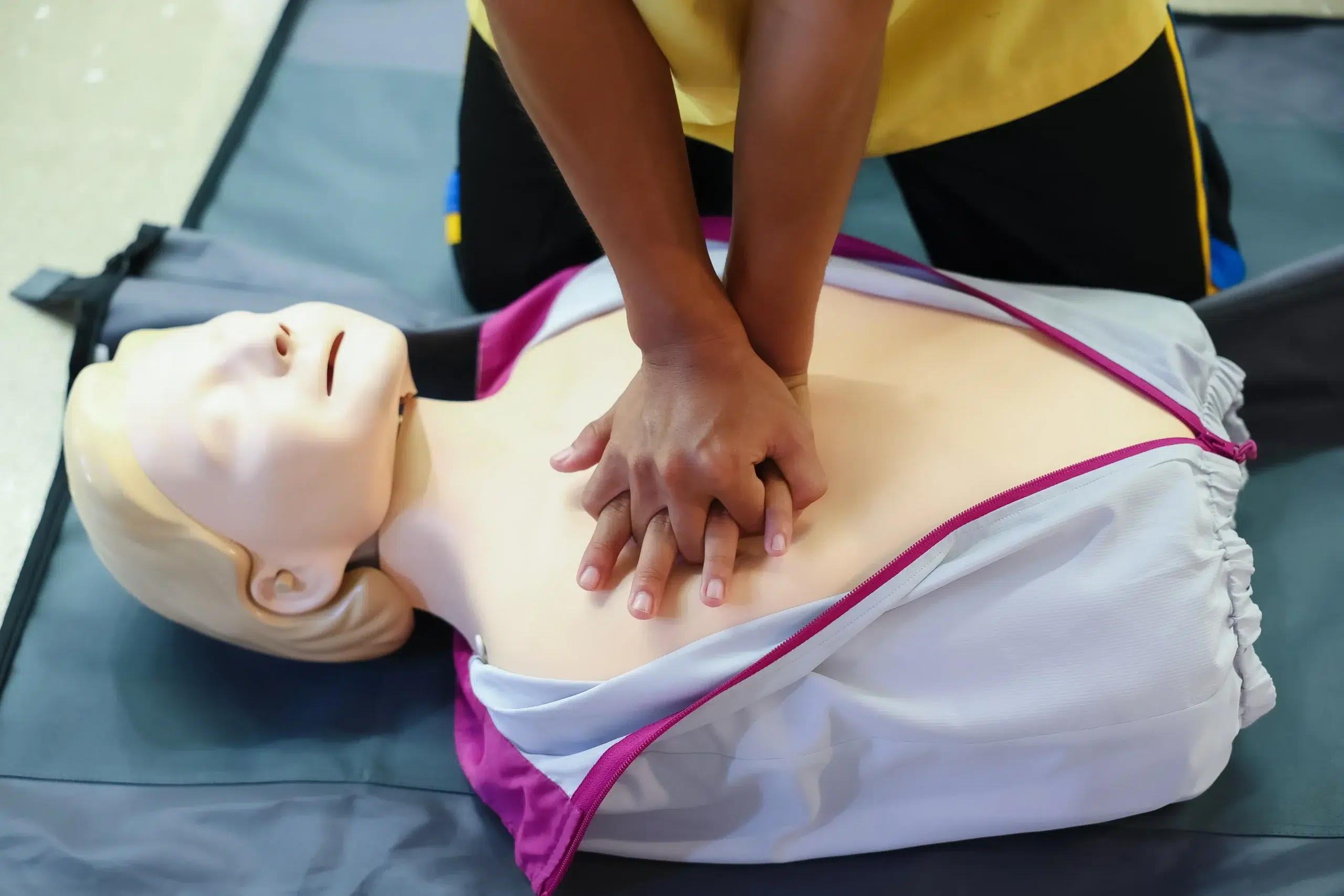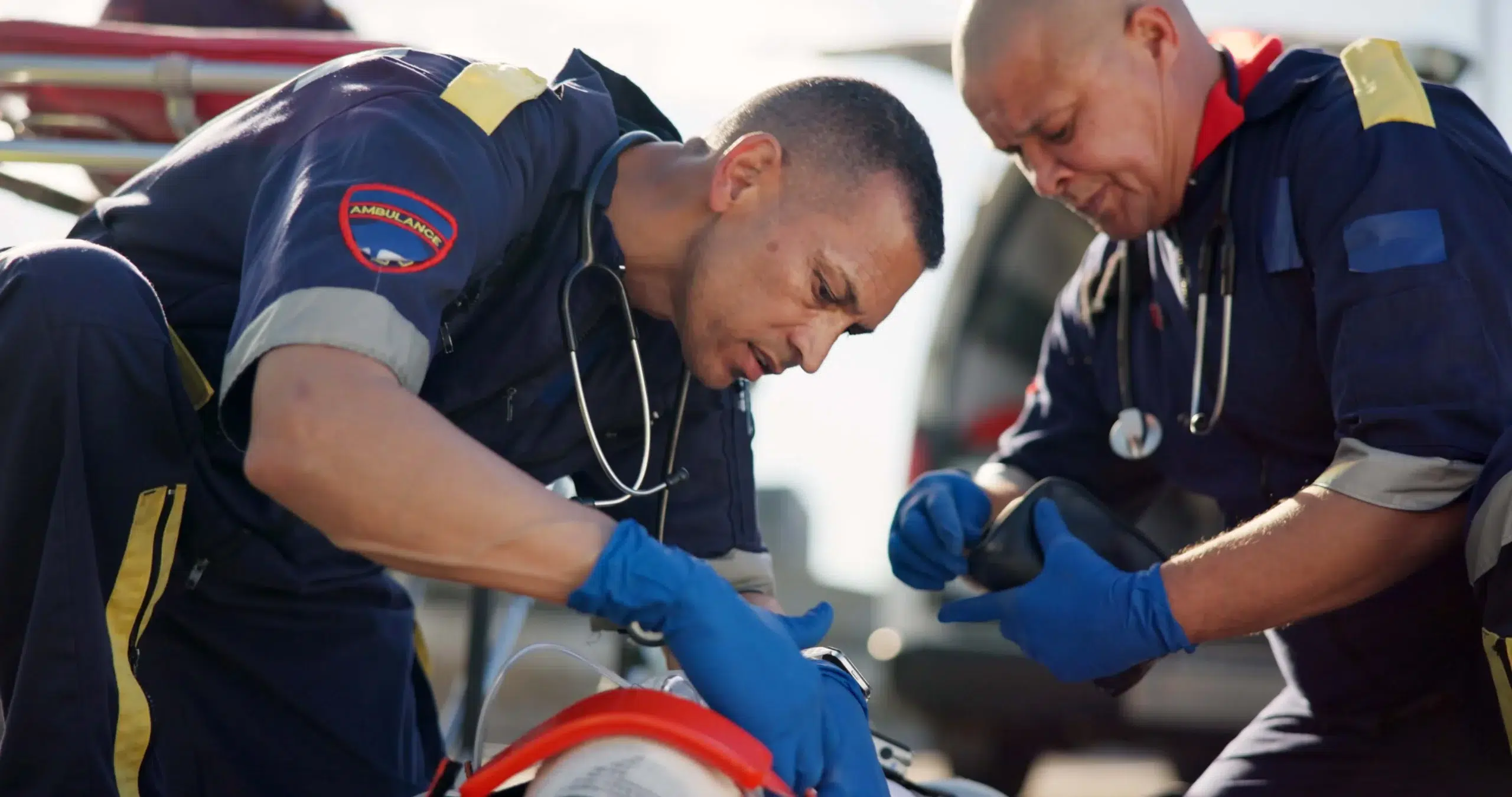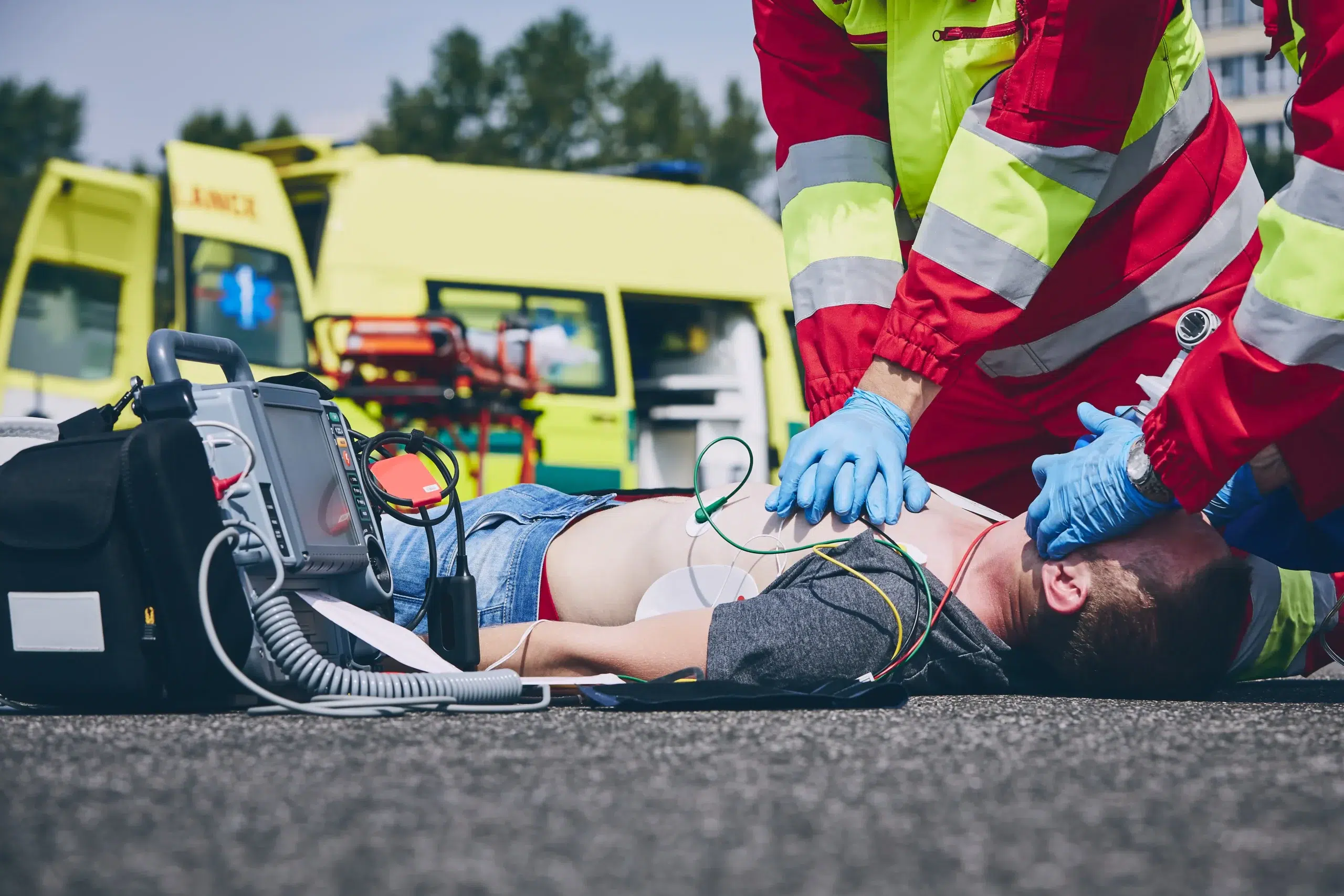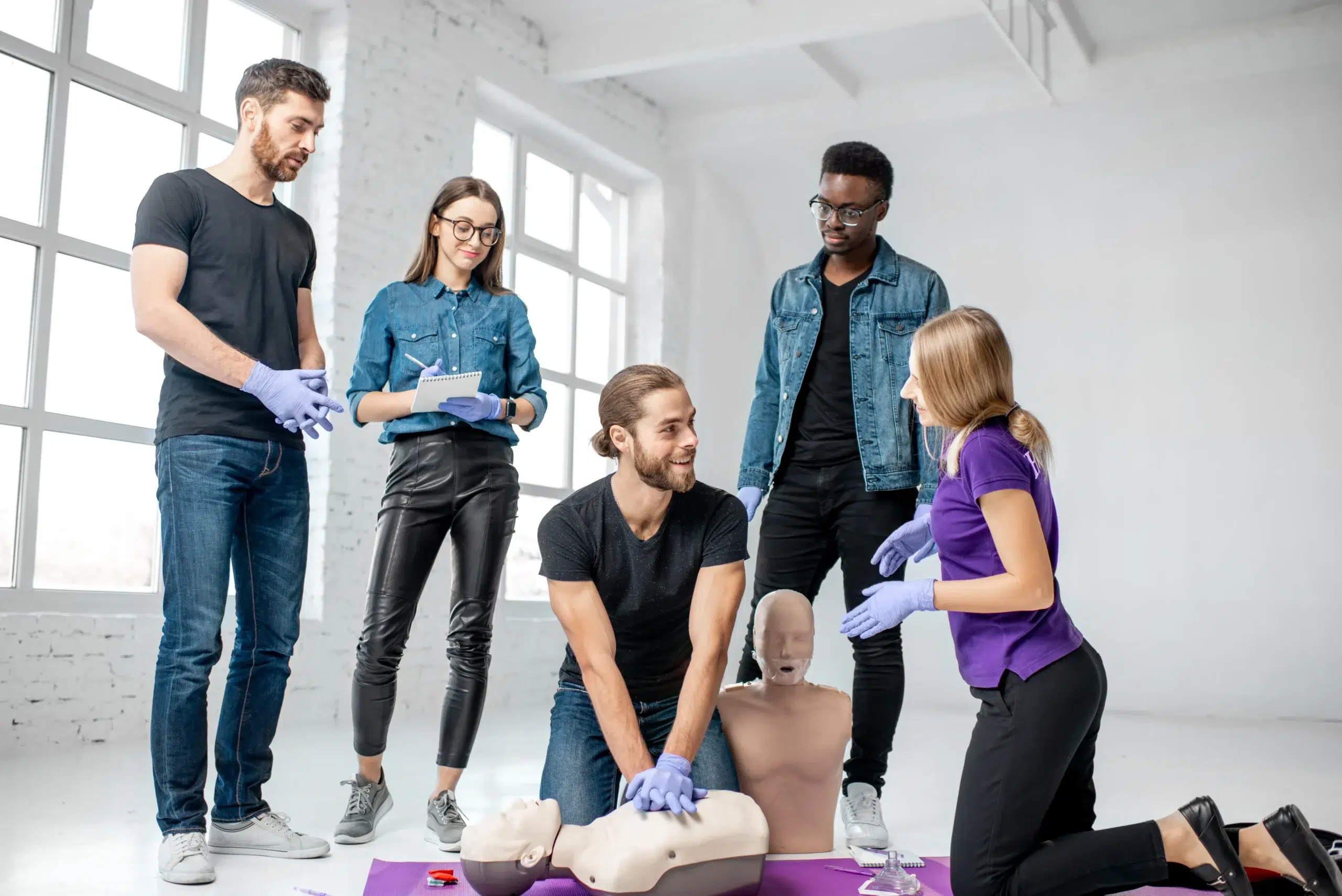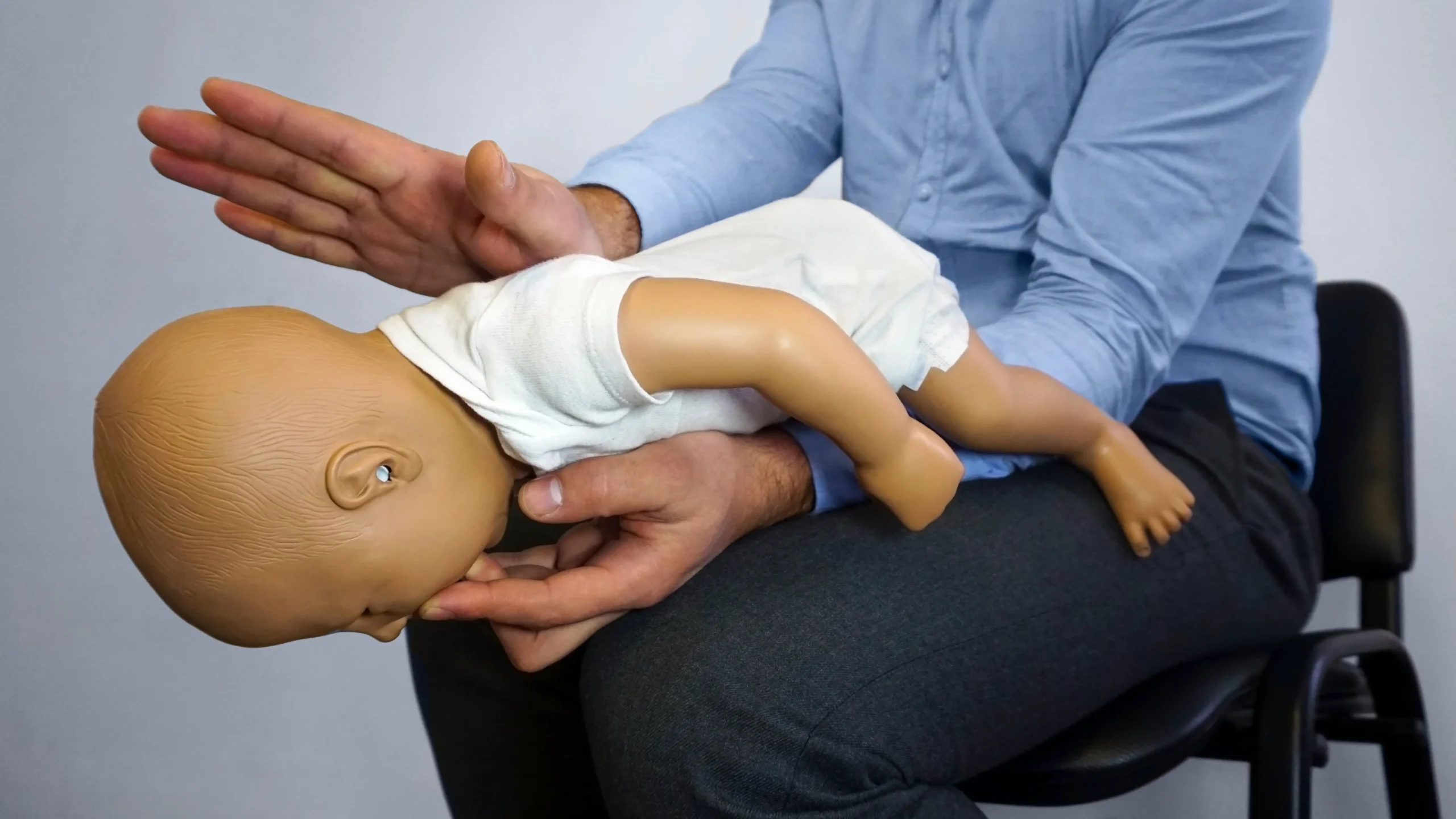As a healthcare provider in San Jose, you understand the critical role you play in responding to emergencies. When it comes to cardiovascular events, having advanced training can be the difference between life and death. Advanced Cardiac Life Support (ACLS) certification provides healthcare professionals with the skills and confidence to manage complex cardiac emergencies effectively. This article will explore the importance of ACLS training in San Jose, outlining the key skills and techniques you’ll learn, the benefits of certification, and how it can advance your career. We’ll also discuss the various training options available in San Jose, helping you find the right course to fit your needs and schedule. Whether you’re looking to refresh your existing skills or gain new ones, this guide will provide valuable information about ACLS certification and its impact on patient care.
Key Takeaways
- ACLS is crucial for advanced cardiac care: It builds upon basic life support skills, providing healthcare professionals with the knowledge and techniques to manage life-threatening cardiovascular emergencies effectively.
- Choose an ACLS course that fits your needs: Consider factors like location, schedule, and learning format (in-person, online, or blended) when selecting a training provider. Look for AHA-accredited centers like Safety Training Seminars for high-quality instruction.
- Maintain your skills for long-term effectiveness: ACLS certification is not a one-time event. Stay current with the latest guidelines and refresh your knowledge and skills through continuing education and refresher courses.
What is Advanced Cardiac Life Support (ACLS)?
What is ACLS and why is it important?
Advanced Cardiovascular Life Support (ACLS) is specialized training designed to equip healthcare professionals with the skills to manage life-threatening cardiovascular emergencies. It goes beyond the basics of CPR and first aid, focusing on advanced interventions for patients experiencing cardiac arrest, stroke, and other acute cardiovascular conditions. This advanced training is crucial for prompt and effective responses in emergency medical care, ultimately increasing the chances of patient survival and positive outcomes. ACLS certification focuses on the advanced knowledge and skills required by healthcare providers in critical situations, while BLS certification provides fundamental life-saving techniques applicable to almost anyone. The training emphasizes a systematic approach to assessment, intervention, and team dynamics, ensuring coordinated and efficient care during these high-pressure events.
Key ACLS skills and techniques
ACLS builds upon the foundational skills learned in BLS certification, expanding the healthcare provider’s toolkit with advanced techniques and interventions. The curriculum covers essential skills, including high-quality chest compressions, using defibrillation effectively, and administering medications promptly. Effective airway management is another critical component, ensuring patients receive adequate oxygenation during a crisis. Beyond these hands-on skills, ACLS training emphasizes robust team communication and collaboration, recognizing that effective teamwork is essential for successful patient outcomes in complex medical emergencies. This comprehensive approach prepares healthcare professionals to manage various critical situations, from cardiac arrest and stroke to acute coronary syndromes and respiratory failure. The use of advanced medication administration is a key element of ACLS, distinguishing it from other resuscitation courses like BLS, PALS (Pediatric Advanced Life Support), and CPR, which primarily focus on basic life-saving measures.
Who Needs ACLS Certification?
This section explores the importance of Advanced Cardiovascular Life Support (ACLS) certification and the various healthcare roles that benefit from this specialized training. If you’re a healthcare provider considering ACLS certification, understanding its relevance to your role is essential.
Healthcare Professionals Who Need ACLS
ACLS certification is crucial for healthcare professionals who encounter cardiac emergencies. These individuals play a vital role in stabilizing patients and administering life-saving interventions. Professionals who regularly need ACLS certification include physicians working in emergency rooms, anesthesiologists managing airways and critical situations, and critical care nurses providing advanced care to unstable patients. Paramedics and EMTs also rely heavily on ACLS. They use their training to deliver immediate interventions even before the patient arrives at the hospital, significantly impacting patient outcomes. Other healthcare providers, such as respiratory therapists, physician assistants, and pharmacists working in critical care, also benefit from ACLS training. These professionals often work collaboratively during cardiac emergencies, making comprehensive ACLS knowledge essential for effective teamwork and communication. Cascade Training Solutions offers further insights into the importance of ACLS for experienced medical professionals.
Importance of ACLS for Different Roles
While CPR provides a foundation for basic life support, ACLS training goes further, encompassing advanced techniques and interventions for managing life-threatening cardiac events. Medtigo highlights common misconceptions about ACLS and underscores its importance. ACLS is a critical component of emergency medical care, giving healthcare professionals the tools to respond effectively. It’s not just about performing procedures; it’s about understanding the underlying physiological principles and making informed decisions under pressure. For physicians, ACLS provides the framework for leading the response team, making critical diagnoses, and directing treatment strategies. Nurses rely on ACLS to implement these strategies, monitor patient responses, and provide ongoing care. Paramedics and EMTs use ACLS as the bridge between the field and the hospital, enabling them to initiate crucial interventions and prepare the patient for definitive care. Master ACLS emphasizes the benefits of ACLS training for any healthcare provider who might respond to a cardiac emergency. The ability to quickly assess, stabilize, and manage patients experiencing these events is paramount, making ACLS certification a valuable asset.
Top ACLS Certification Providers in San Jose
Finding the right provider for your Advanced Cardiovascular Life Support (ACLS) certification is crucial for your career and confidence in emergencies. Here are some places to explore in San Jose:
AHA-Accredited Training Centers
The American Heart Association (AHA) sets the standard for ACLS training. Look for AHA-accredited training centers like CPR Training Center, which offer AHA ACLS Certification in San Jose. These centers adhere to the latest AHA guidelines and provide high-quality instruction. Make sure any training center you choose maintains its AHA accreditation to ensure you receive the most up-to-date and recognized training.
Safety Training Seminars
Safety Training Seminars offers various AHA courses, including BLS, ACLS, PALS, and CPR training throughout the San Francisco Bay Area and Sacramento. Their focus on hands-on learning and flexible scheduling makes them a convenient option. Check their website for ACLS courses in Newark, conveniently located near San Jose. They also offer a low price guarantee, making them an affordable choice.
Local Hospitals and Medical Institutions
Many hospitals and medical institutions offer ACLS courses, often tailored to their staff’s needs. These courses can be a good option if you’re looking for training integrated with your workplace environment. The AHA also offers an ACLS course for experienced providers, designed for healthcare professionals already proficient in ACLS skills. Inquire with local hospitals like Good Samaritan Hospital, Regional Medical Center of San Jose, or O’Connor Hospital about their ACLS training programs. Contacting these institutions directly can provide you with specific details about their course offerings and schedules.
Other Reputable Providers
Several other reputable providers offer ACLS certification. When considering these options, ensure they are AHA-compliant and offer the training you need. CPR Class Pro, for example, provides an ACLS Instructor Course for healthcare providers seeking to become certified ACLS instructors. Always verify the credentials and reputation of any training provider before enrolling. Look for reviews and testimonials to get a sense of past students’ experiences.
Get ACLS Certified: The Process
Getting your ACLS certification is a straightforward process. Here’s what you need to know about the requirements, the course itself, and how to keep your certification current.
Prerequisites and Requirements
Before you sign up for an ACLS course, you’ll need a current BLS CPR provider card. This is because ACLS builds upon the foundational skills taught in basic CPR. Make sure your BLS certification is from a recognized organization like the American Heart Association (AHA). Beyond that, there aren’t any other formal requirements, although a basic understanding of medical terminology is helpful.
Course Structure and Duration
ACLS courses typically involve a combination of interactive lectures, hands-on skill practice, and simulated scenarios. You’ll learn essential algorithms for managing cardiac arrest, stroke, and other acute cardiovascular emergencies. The course includes practice with essential equipment like bag-mask ventilation, electrocardiogram (ECG) interpretation, and defibrillation. At Safety Training Seminars, our ACLS courses in Newark are designed to be efficient and comprehensive, clocking in at around 6 hours. We also offer a blended learning option that allows you to complete part of the coursework online, followed by an in-person skills session. You can view our course schedule and register here.
Certification Renewal
Your ACLS certification is valid for two years. To stay certified, you’ll need to complete a recertification course before it expires. This ensures you’re up-to-date on the latest guidelines and best practices for advanced cardiac life support. Recertification courses are generally shorter than the initial certification course, focusing on key updates and a review of core skills. More information about our renewal options is available on our website.
What to Expect in an ACLS Class
ACLS certification focuses on evidence-based treatment algorithms. You’ll learn to assess a patient, identify life-threatening issues, and make quick decisions. Expect to cover topics like airway management, stroke recognition, and acute coronary syndromes. A solid understanding of these concepts is the foundation of effective emergency care.
Theory and Concepts
ACLS isn’t just about memorizing facts. It’s about applying knowledge in dynamic situations. Your class will cover the core concepts of cardiovascular emergencies, including how to interpret ECG rhythms and administer medications. This theoretical groundwork forms the basis for practical application during real-world emergencies. For more information, check out these resources on ACLS training scenarios.
Hands-on Practice
In a good ACLS course, you’ll have plenty of opportunities to practice essential skills. This includes chest compressions, bag-mask ventilation, and placing IV lines. These hands-on sessions build muscle memory and confidence, preparing you to act decisively under pressure. A supportive learning environment, like the one described in this student feedback, helps students master these critical skills.
Simulations
High-quality ACLS courses use simulations to recreate real-life emergencies. Working through these scenarios with your team helps you develop teamwork, communication, and critical thinking skills. You’ll learn to coordinate care, communicate effectively, and adapt to changing circumstances. Learn more about realistic training scenarios.
Common Challenges and Solutions
Even experienced healthcare professionals face challenges during emergencies. Your ACLS class will address common issues like communication breakdowns and how to overcome them. You’ll also learn strategies for managing complex cases and making quick decisions when time is of the essence. This preparation helps you anticipate potential problems and develop effective solutions. For further insights, explore these resources on overcoming common challenges in ACLS.
ACLS Training Costs & Value in San Jose
Deciding to invest in Advanced Cardiac Life Support (ACLS) training is a smart move for any healthcare professional. But understanding the costs and long-term value associated with these courses is essential. Let’s break down what you can expect in San Jose.
Average Costs and Factors
In San Jose, an initial ACLS course typically costs around $250 for in-person training. These courses usually run for about 12 hours and cover a comprehensive curriculum. If you’re looking for a more flexible and often more affordable option, consider blended learning, which combines online coursework with a shorter in-person skills session. This format is often priced around $150. Several factors can influence these prices, including the training center, the course format, and any included materials. Check with specific providers like Safety Training Seminars for their latest pricing and course schedules.
Discounts and Special Offers
Many training centers offer discounts, so keep an eye out for those! Group discounts are often available for groups of six or more, which can be a great way to reduce the per-person cost when coordinating training for a team or department. Contact Safety Training Seminars to learn more about potential group discounts. They also offer a low price guarantee, so you can be confident you’re getting a good value.
Long-Term Benefits
Earning your ACLS certification is an investment in your career. This certification, valid for two years, demonstrates your commitment to providing high-quality patient care in critical situations. It’s a valuable credential that can enhance your resume and open doors to new opportunities. Remember that maintaining your skills is crucial. Regular recertification ensures you stay up-to-date with the latest guidelines and best practices in advanced cardiac life support.
Choose the Right ACLS Course Format
Finding the right ACLS course format is key to successfully completing your training. Each learning style has its advantages, so consider what works best for you and your schedule. Here’s a breakdown of the most common options:
In-Person Training
In-person ACLS training offers a hands-on learning experience ideal for those who thrive in interactive environments. You’ll work directly with certified instructors, practice skills in real-time, and receive immediate feedback. This format emphasizes collaboration and allows you to ask questions and clarify concepts on the spot. For many, the face-to-face interaction and opportunity for direct observation are invaluable aspects of in-person training. Our ACLS courses in Newark provide this immersive learning experience.
Online Certification
Online ACLS certification provides flexibility for those with busy schedules or limited access to in-person classes. The HeartCode® ACLS online program through the American Heart Association is a popular choice. This self-directed program uses adaptive learning technology, tailoring the curriculum to your individual progress. While online learning offers convenience, it’s important to ensure the program you choose includes a hands-on skills session component, as practical application is crucial for mastering ACLS.
Blended Learning
Blended learning combines the convenience of online learning with the benefits of in-person instruction. You’ll typically complete the online coursework at your own pace, then attend a hands-on skills session to practice and demonstrate your proficiency. This format offers a balance between flexibility and practical application, making it a great option for those who want a comprehensive learning experience. Blended learning is a great way to get the best of both worlds.
Prepare for Your ACLS Certification
Getting ready for your ACLS certification involves a few key steps. Being prepared makes the learning process smoother and helps you focus on mastering these lifesaving skills.
Materials and Equipment
You’ll need a few essential materials for your ACLS course. The most important is the ACLS Provider Manual. You can often choose between an eBook or a paperback version. The eBook offers a convenient, portable option and may be available at a lower cost. Some providers, like Safety Training Seminars, may include the cost of the manual in the course fee, so check with your chosen training center.
Pre-Course Study Tips
ACLS courses typically require pre-course work. This often involves online modules and reading to familiarize yourself with the core concepts before the in-person skills session. Set aside dedicated study time before your class. Reviewing the material beforehand lets you absorb the information at your own pace and arrive prepared to practice. Check with your training center for recommended study resources. Safety Training Seminars, for example, may offer online resources or practice tests to help you prepare.
Day-of Essentials
On the day of your ACLS class, double-check that you have everything you need. Bring your certificate of completion from the pre-course work to confirm you’ve finished the online portion. Also, bring your ACLS Provider Manual, unless your training center provides one. Having your manual on hand allows you to follow along with the instructor and take notes. Finally, dress comfortably. You’ll be participating in hands-on simulations, so wear clothing that allows for a full range of motion. Consider bringing a water bottle and snacks to stay hydrated and energized throughout the day.
Why Choose Safety Training Seminars?
Deciding where to get your ACLS certification is a big decision. Safety Training Seminars stands out for its comprehensive approach, flexible options, and commitment to student success. Here’s why they’re a top choice for ACLS training in the San Jose area:
Unique Benefits
Safety Training Seminars offers a wide range of American Heart Association courses, including BLS, ACLS, PALS, NRP, CPR, and First-Aid. This comprehensive selection makes it a one-stop shop for all your certification needs. They’re committed to providing high-quality education, ensuring you receive the latest training and best practices for effective emergency response. Their low price guarantee provides excellent value. They also offer discounted group rates for businesses training multiple staff members. You can explore their CPR and First-Aid courses for more information on their offerings.
Flexible Scheduling
Juggling work, family, and other commitments makes finding time for training tough. Safety Training Seminars understands this and offers classes daily, including weekends, from 8 am to 10 pm. This flexible scheduling allows you to easily fit this essential training into your busy schedule. Browse their BLS course calendar to see the range of available dates and times.
Expert Instructors & Hands-on Learning
At Safety Training Seminars, you’ll learn from experienced instructors dedicated to creating a supportive and engaging learning environment. They understand that learning these critical skills can be stressful, so they prioritize a positive and encouraging atmosphere while maintaining the necessary professionalism. The curriculum emphasizes hands-on learning, using realistic training scenarios to prepare you for real-world emergencies. This practical approach, combined with positive student feedback, builds confidence in your ability to respond effectively.
Maintain Your ACLS Skills
Earning your ACLS certification is a significant achievement, but it’s just the first step. Maintaining your skills is essential for providing effective patient care during emergencies. This involves staying informed about the latest guidelines and regularly refreshing your knowledge and practical skills.
Continuing Education
Continuing education is vital for any healthcare professional. It helps you stay current with the latest advancements and techniques in advanced cardiac life support. This might include attending workshops, conferences, or completing online courses that cover new research, updated procedures, or emerging best practices. Regular continuing education demonstrates your commitment to providing excellent patient care and strengthens your overall expertise. Resources like the American Heart Association offer valuable continuing education opportunities.
Refresher Courses
Even with ongoing education, regularly practicing core ACLS skills is essential. Refresher courses provide focused training, allowing you to hone essential techniques and reinforce your knowledge. These courses often incorporate realistic training scenarios, giving you the opportunity to work through simulated emergencies and build confidence in your ability to respond effectively under pressure.
Stay Updated on Guidelines
Medical knowledge is constantly evolving, and ACLS guidelines are updated periodically to reflect the latest research and best practices. Staying informed about these updates is crucial for maintaining your certification and ensuring your practices align with current standards. Regularly review the American Heart Association’s guidelines for revisions and updates. Subscribing to relevant journals or newsletters can also help you stay informed about new research and guideline changes.
Related Articles
- Why CPR is Important in Healthcare – Newark CPR Classes
- AHA ACLS Classes in Newark, CA – Newark CPR Classes
- BLS Courses in San Jose: The Complete Guide – Newark CPR Classes
- CPR Certification in San Jose: Your Complete Guide – Newark CPR Classes
- BLS Courses in Newark: Your Complete Guide – Newark CPR Classes
Frequently Asked Questions
How is ACLS different from basic CPR?
ACLS builds upon the foundational skills of CPR. It delves into advanced techniques for managing complex cardiovascular emergencies, including specific medication protocols, ECG interpretation, and team-based resuscitation strategies. CPR focuses on immediate life support, while ACLS addresses more complex situations requiring a deeper understanding of cardiovascular physiology and pharmacology.
What career paths benefit most from ACLS certification?
ACLS certification is highly beneficial for healthcare professionals involved in emergency or critical care settings. This includes physicians, nurses, paramedics, respiratory therapists, and other specialists who may encounter and manage cardiac arrest, stroke, or other acute cardiovascular events. While not always mandatory, holding an ACLS certification can significantly enhance career prospects and demonstrate a commitment to advanced life support techniques.
How do I choose a reputable ACLS training provider?
Look for training centers accredited by the American Heart Association (AHA). AHA accreditation ensures the course adheres to the latest guidelines and standards. Consider factors like instructor experience, course format (in-person, blended, or online), available schedules, and overall cost when making your decision. Reading reviews and testimonials from previous students can also offer valuable insights.
What can I expect during an ACLS course?
Expect a blend of interactive lectures, hands-on skill practice, and realistic simulations. You’ll learn essential algorithms for managing various cardiovascular emergencies, practice techniques like intubation and defibrillation, and work as part of a team to manage simulated crises. Be prepared for a fast-paced and engaging learning experience.
How do I maintain my ACLS certification after completing the course?
ACLS certification typically requires renewal every two years. Recertification courses are available to refresh your knowledge and skills. Staying up-to-date with the latest AHA guidelines and pursuing continuing education opportunities in your field will also help you maintain proficiency in advanced cardiac life support.
